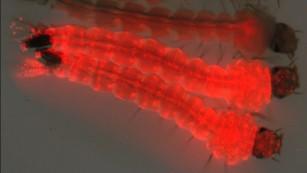750 Million Genetically Engineered Mosquitoes To Be Released In Florida Keys Despite Objections Over ‘Jurassic Park Experiment’
Tyler Durden
Thu, 08/20/2020 – 18:05
Officials in the Florida Keys approved a plan to release over 750 million genetically modified mosquitoes, despite objections by local residents and several environmental advocacy groups.
The proposal – aimed at eradicating the Aedes aegypti species of mosquito that carries several deadly diseases including Zika, dengue, chikungunya and yellow fever – has already been approved by both state and federal bodies, with the EPA signing off on it in May.
“With all the urgent crises facing our nation and the State of Florida — the Covid-19 pandemic, racial injustice, climate change — the administration has used tax dollars and government resources for a Jurassic Park experiment,” said Jaydee Hanson, policy director for the International Center for Technology Assessment and Center for Food Safety in a Wednesday statement reported by CNN.
“Now the Monroe County Mosquito Control District has given the final permission needed. What could possibly go wrong? We don’t know, because EPA unlawfully refused to seriously analyze environmental risks, now without further review of the risks, the experiment can proceed,” she added.
Named OX5034, the mosquito has been genetically altered to produce only female offspring which die in the larval stage, before they can hatch and start biting things. Only female mosquitoes suck blood, which they require to mature their eggs. Males feed on nectar and are not carriers for disease.
To grow them to adulthood, however, the antibiotic tetracycline is added to the water – creating batches of sterile OX513A which would be allowed to mate with females, whose offspring would inherit the self-destruct programming and die.
The same mosquitoes have also been approved for release in Harris County, Texas beginning next year, according to the US-owned UK-based Oxitec which developed the genetically modified bugs and has field tested them in the Cayman Islands, Panama and Brazil.
According to the company, a trial in an urban area of Brazil reduced the Aedes aegypti by 95%.
“This is an exciting development because it represents the ground-breaking work of hundreds of passionate people over more than a decade in multiple countries, all of whom want to protect communities from dengue, Zika, yellow fever, and other vector-borne diseases,” said Oxitec CEO Grey Frandsen in a previous statement.
Florida reached out to Oxitec in 2012, after 2009 and 2010 outbreaks of dengue fever in the Florida Keys were unable to be contained with aerial, truck and backpack spraying, as well as the use of mosquito-eating fish.
That said, a backlash over the GMO mosquitoes has ensued – with nearly 250,000 people signing a Change.org petition against the plan.
The EPA permit requires Oxitec to notify state officials 72 hours before releasing the mosquitoes and conduct ongoing tests for at least 10 weeks to ensure none of the female mosquitoes reach adulthood.
However, environmental groups worry that the spread of the genetically modified male genes into the wild population could potentially harm threatened and endangered species of birds, insects and mammals that feed on the mosquitoes. -CNN
“The release of genetically engineered mosquitoes will needlessly put Floridians, the environment and endangered species at risk in the midst of a pandemic,” said food technology program manager at Friends of the Earth, Dana Perls.
